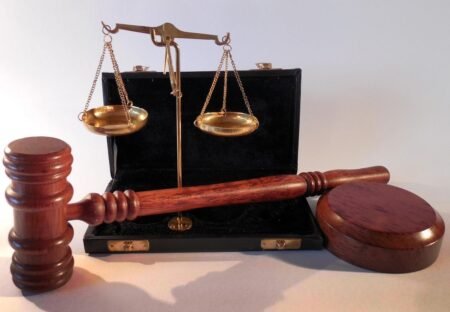The European Parliament on 11 June approved a new EU Regulation on the customs enforcement of Intellectual Property Rights.
Advertisement
What are Intellectual Property Rights?
Intellectual property rights (IPR) cover all forms of commercial activities and artistic creations. They fall into two categories: industrial property and copyright. Industrial property includes a diversity of rights such as patents (which protect inventions), trade marks, geographical indications and designs. Copyright – or authors’ rights -protects literary and artistic works (books, plays, films, musical works, paintings, photographs, sculptures, maps etc.). Copyright also includes related or neighbouring rights such as those of performers, producers of films and sound recordings, and broadcasters.
IPR provides their owners with the means to decide, for a specific and limited time, how their inventions and creations are to be used, reproduced and commercialised. IPR rewards innovation and creativity and promotes the dissemination of goods and services. For many industries and sectors, well-managed intellectual property rights are a core element of their business strategy and a key factor for their European and global competitiveness.
What are IPR infringing goods?
IPR infringing goods are those involved in acts which are not permitted without the consent of the proprietor of the IPR:
Counterfeit goods infringe a trade mark and often look the same as the original goods. They contain a symbol or mark on the product or on the packaging that look identical to that of the genuine goods for which the trade mark was registered, even though they are not made by the owner of that trade mark or with his consent. Textile products, shoes and luxury goods are often targeted by counterfeiters, though customs increasingly intercept normal household goods such as personal care products.
Pirated goods that are copied without the approval of the owner of the copyright or design. The most well-known copied goods are CDs and DVDs containing music, films or video games.
Goods infringing other types of rights, such as MP3 players infringing patents, food products infringing geographical indications or flowers or plants infringing plant variety rights. This category also includes infringements of trademarks and copyrights that do not fall under points 1 and 2, such as products bearing the sign of a well known trade mark which is not registered for that kind of products, or “R4” chips that are used to play illegal games on a console and thereby circumventing protective measures.
What is the role of customs in IPR enforcement?
Customs play an important role in identifying and detaining, at the border, shipments of goods suspected of infringing IPR. In 2011, customs detained 115 million articles in over 91,000 cases. The value of the intercepted goods represented nearly EUR 1.3 billion.
Customs enforce IPR on the basis of EU legislation and is supported by a multi-annual EU action plan that aims to improve the effectiveness of customs control, strengthen cooperation with industry and international partners and raise awareness of consumers to the negative consequences of buying IPR infringing goods.
Why were new rules necessary?
The new regulation takes account of developments such as the increasing importance of IPR for the EU economy, the explosion of postal traffic resulting from internet sales, practical problems in the implementation of the present regulation, fundamental procedural rights or the detention of generic medicines in transit through the EU on their way to third countries.
At the Council’s invitation, the Commission carried out a review of this Council Regulation (including a public consultation and impact assessment), which concluded that the legal framework could be strengthened, and certain administrative procedures clarified to safeguard the interests of legitimate traders.
How will customs enforcement of IPR be strengthened?
The list of possible IPR infringements to be controlled by customs at the border will be wider. The new regulation includes infringements such as confusingly similar trade mark. Confusingly similar trade marks are goods where there exists a likelihood of confusion on the part of the public between the sign and the trade mark.
Furthermore, the list of protected rights is extended to trade names, topographies of semiconductor products, utility models, devices to circumvent technological measures and non-agricultural geographical indications. In practice, it means that customs would be able to take actions against goods falling into these new categories and found to be infringing IPR rules.
The existing procedure for the early destruction of goods infringing IPR will also be made mandatory in all Member States. Until now, the early destruction of goods (applied in 50% of all detentions in 2009) was not compulsory in all EU Member States. A specific procedure for the early destruction of counterfeit and pirated goods contained in small postal consignments is also proposed.
Why is it only now that these new categories are being introduced?
The enforcement of IPR has developed constantly since 1986, when customs were first tasked with this responsibility at the border. The first regulation in 1986 started with only trade mark protection and has evolved to encompass under all forms of IPR, in this latest proposal. IPR infringements have developed in a similar fashion. Right holders were initially concerned with simple counterfeiting, whilst today, there is clear evidence of sophisticated infringements of goods protected by patents or topographies of semi conductors.
Customs are ideally placed, at the EU borders to control goods and it is therefore appropriate to include all other kind of IPR in these controls. The enforcement of IPR by customs has evolved over time to take account of the increased interest in enforcement.
What is the problem with small consignments sent by post?
We are facing an explosion in the number of small consignments of IPR infringing goods in the postal and courier traffic, which may result from internet sales. Figures for 2011 show an increase of almost 300% since 2009 in detained postal consignment. Dealing with them is a burden for customs and right-holders. To tackle this problem, an alternative simple procedure is proposed for counterfeit or pirated goods. The person receiving the goods would be offered the possibility to agree to their destruction, without having to pay costs or fulfil formalities.
When will customs control for IPR infringing goods?
Customs can control goods for possible IPR infringements, as well as for other reasons, as long as the goods are under their supervision. Goods that enter or leave the Union stay under customs supervision until they are released into the market or exported. In the framework of IPR enforcement, customs will only detain goods and inform the right-holder, when they have a reasonable suspicion of infringement.
Situations in which an infringement can occur are determined by the laws protecting IPR such as the trade mark, copyright or patent laws. The importation or exportation of such goods protected by an IPR, without the consent of the owner of that IPR, is prohibited, likewise offering the goods for sale in the EU.
Will customs check passengers for IPR purposes?
Passengers are and will remain subject to customs control at EU external border crossing points for a variety of reasons, including possible IPR infringements. However, the Regulation specifically excludes goods of a non-commercial nature contained in travellers’ personal luggage: the Regulation would not give power to customs to detain goods for personal use carried by travellers.
Who must pay the costs of customs intervention?
The right-holder seeking to protect IPR must ask the customs authorities to take action, so they will detain goods they identify as suspected of being infringing goods. Certain costs incurred by customs, such as storage and destruction costs, will continue to be borne by the right-holder. However, the right-holder may seek to recover these costs from the other parties involved.
Other costs, such as those resulting from court proceedings, will often be paid as determined by the court, where the infringer could be made liable.
Will this proposal have an impact on the good functioning of the Single market?
The proposal is part of the new Commission’s strategy on IPR, and of the Single Market Act. In order to preserve the EU’s growth potential, IPR must be protected and enforced. The proposal further harmonises the enforcement procedures by customs across the Single market, while respecting the legal framework of the EU Member States. It will also enable customs to fulfil its critical role at the border in a more effective manner, thereby reinforcing the protection of the Single market against IPR violations.
When will the new rules enter into force?
The regulation will enter into force 20 days after its publication in the official journal and become applicable from 1st January 2014.
Source: European Commission, European Parliament





